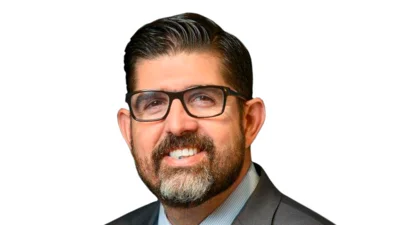Altierus Career College-Orange Park recently issued the following announcement.
Looking at dental assistant training programs? If you’re interested in getting started in this career, you may have questions about what you’ll need to learn in your program. You may also be wondering if dental assistants need licenses to work, like nurses or surgical technologists.
The short answer is, “It depends!” Different states have different regulations about what kind of training dental assistants need and what duties they can perform on the job. Read on to learn more.
Licensure vs. Certification
First, we want to clear up the difference between a “license” and a “certificate.” They’re not the same thing.
A certificate is issued by an industry organization that has created standards for a profession. When you earn certification as a dental assistant from an organization like the Dental Assistant National Board (DANB), it shows employers that you have successfully met industry standards for the role.
Some of the dental assistant certifications offed by the DANB include:
- National Entry Level Dental Assistant (NELDA®)
- Certified Dental Assistant™ (CDA®)
- Certified Orthodontic Assistant (COA®)
- Certified Preventive Functions Dental Assistant (CPFDA®)
- Certified Restorative Functions Dental Assistant (CRFDA®)
A license is a legal document issued by a government. It confirms that you have shown you can perform a role, that you’ve agreed to perform that role responsibly, and that the state has given you permission to work in that career field.
Some states may require you to earn certification from your industry to become eligible for a license.
Dental Assistant Training and Licensure Varies by State
Every state sets its own standards for how much training dental assistants need and the kinds of duties they can perform on the job.
In many states, you can get started as an entry-level dental assistant with just on-the-job training. In others, you need to prove you have completed a formal training program and pass an exam first. Some states, like Florida, have multiple categories of dental assistant: those who have been trained on the job, those who have had formal training but are just getting started, and formally trained, experienced dental assistants with a license to perform certain clinical tasks.
These tasks, sometimes called “expanded practice” or “expanded duties” tasks, can include:
- Coronal polishing (removing plaque from the teeth)
- Taking or developing dental x-rays
- Administering or monitoring nitrous oxide pain relief
- Taking impressions for bleaching trays, study casts, or other purposes
- Creating and applying temporary crowns
- Removing sutures or periodontal dressings (bandages on the gums)
Dental Assistant Training at Altierus Career College
As dentistry becomes more sophisticated, dental assistants need to be capable of providing more complex clinical support to dentists. That’s why Altierus Career College offers hands-on training that reflects industry standards for expanded dental assistant functions, including dental x-rays, in accordance with state regulations. Our students in Texas, for example, prepare to take the Registered Dental Assistant (RDA) exam, while Florida and Georgia students can enter the job market without sitting the RDA exam.
Our nine-month dental assistant diploma program is available at all three of our campus locations. Find out if it’s right for you today!
Original source can be found here.





 Alerts Sign-up
Alerts Sign-up